Show only Challenges that are:
Texas A&M Forest Service Nature Challenge
All Challenges
This list includes Anywhere Challenges, which are not location specific and can be completed at a time and place of your choosing.
Displaying - of 49 results.
-

Over twenty pages of activities for kids all about Arbor Day. Great for a rainy day!






-

Take pictures of Flat Smokey practicing safe campfire skills, and share on social media!






-

Play Bingo by working, playing, and exploring around the house!






-

Trees Care for Your Peace of Mind! Did you know that exposure to forests decreases mental fatigue by relaxing and restoring your mind as well as providing a sense of security? Visit healthytreeshealthylives.org to learn more!






-

Learn about Careers in the Forest in this Activity Book from Southern Foresters and the USDA Forest Service. Explore the skills and vocabulary of Green Careers in Forestry!






-

Sit somewhere in your nearby nature and listen to sounds. Identify them as natural or man made.






-

Take a hike in nature using your 5 senses and see what observation you can make. (Only Taste if an EXPERT says so)






-
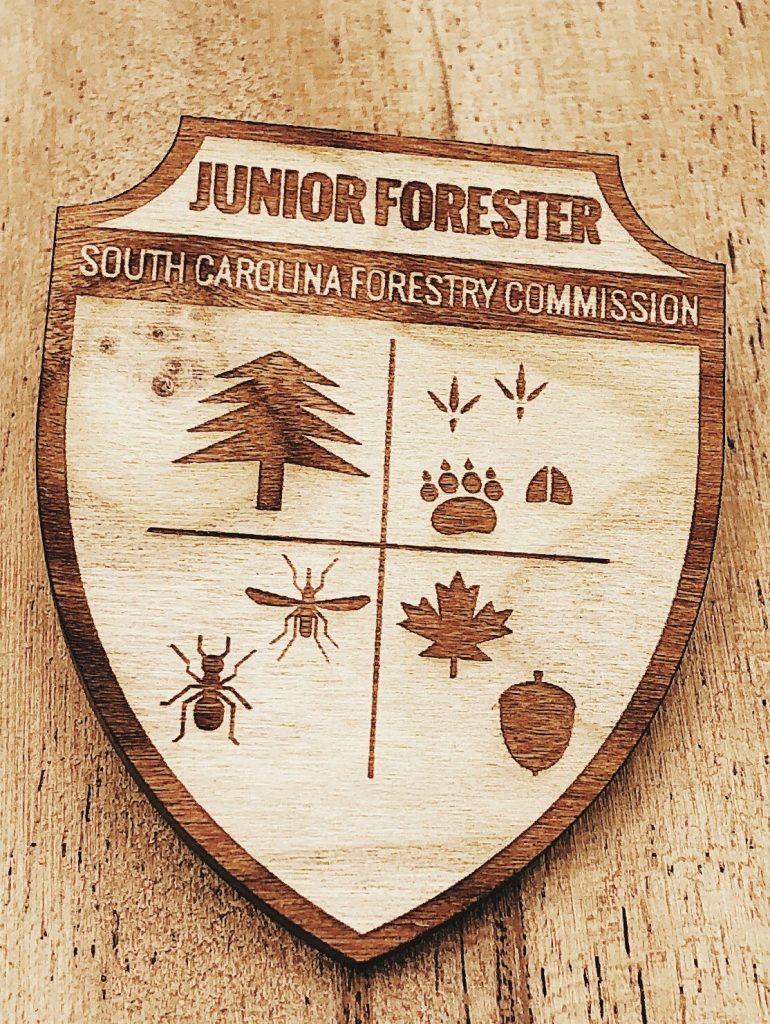
Families can visit the state forest’s Environmental Education Center to check out a backpack loaded with nature investigation supplies. They’ll also receive a grade level appropriate activity book (K-2 or 3-5) containing hands-on learning experiences that the children will complete while taking a self-guided hike in the forest. Upon completion, each child will receive a prize! The Junior Forester program is FREE of charge and available from 8 a.m.-2 p.m. Monday through Friday. Walk-ins are welcome, but reservations are encouraged. Due to limited staffing, this program is not available on weekends.






-
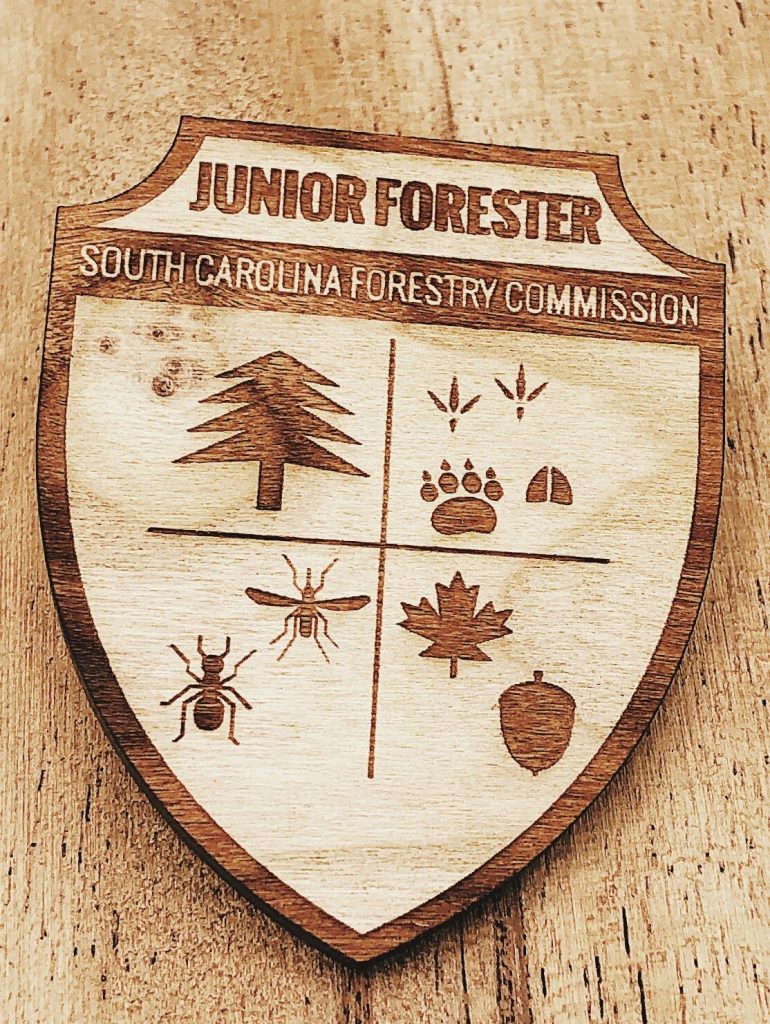
Looking for something fun AND educational to do with your kids while at Harbison State Forest? Consider participating in SC Forestry Commission’s Junior Forester program. Families can visit the state forest’s Environmental Education Center to check out a backpack loaded with nature investigation supplies. They’ll also receive a grade level appropriate activity book (K-2 or 3-5) containing hands-on learning experiences that the children will complete while taking a self-guided hike in the forest. Upon completion, each child will receive a prize! The Junior Forester program is FREE of charge and available from 8 a.m.-2 p.m. Monday through Friday. Walk-ins are welcome, but reservations are encouraged. Due to limited staffing, this program is not available on weekends.






-

Geocaching is a great family-friendly activity for all ages to get outside and explore our beautiful forests. The purpose of this course is to educate the public about the South Carolina Forestry Commission (SCFC) and the importance of forestry in our state. There are seven individual geocaches hidden along the education trails at Harbison State Forest in Columbia, SC. Each cache contains information regarding the divisions and duties within the SCFC. There is an accompanying set of seven questions (1 for each cache) that can be completed and turned into the Education Center. If you answer all seven questions correctly, you will receive a Forest Life geocache coin!






-
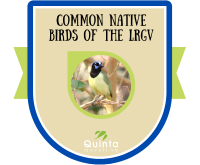
Become familiar with identifying local avifauna by observing what they do in the thornbursh.






-
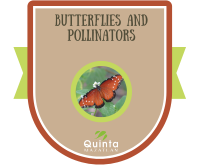
Learn about the different types of pollinators which work bring balance to our ecosystem!






-
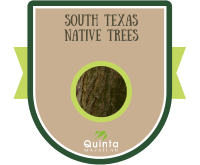
Explore South Texas Native Trees by learning what makes them unique!






-

Take pictures of Flat Smokey practicing safe campfire fire and wildfire prevention skills, and share on social media!






-
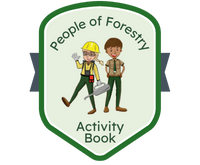
Learn and explore forest careers through the Careers in the Forest Activity Book created by the Southern Group of State Foresters and the USDA Forest Service. Complete short activities, coloring pages, and learn skills and vocabulary related to green careers in forestry!






-

Did you know that most people can identify over 100 corporate logos before 8 years old, but don't know the names of the plants around them? Beat the odds by playing this game! Learn how to identify 29 urban plants (trees, shrubs/small trees, vines, wildflowers/forbs and grasses/grass-like plants) in your community in a scaffolded game. This activity is suited for individual, group or indoor/outdoor classroom learning use for any age. The plant images used were chosen to emphasize patterns that humans use to categorize plants and build skill in developing mental dichotomous keys to practice immediate visual recognition of common plant species.






-

Start at the bottom and make it to the top without stopping! Slow and steady wins the race!






-
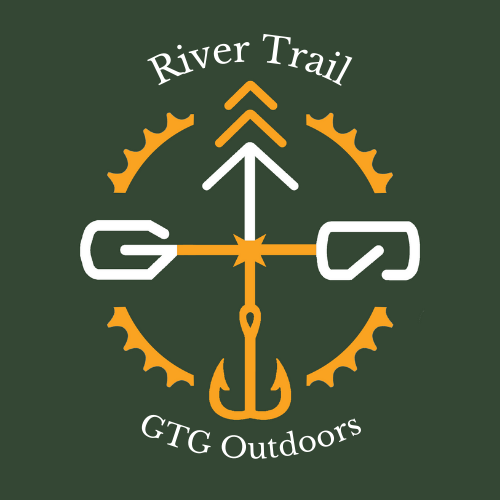
Enjoy the full length of the Cameron park River Trail!






-
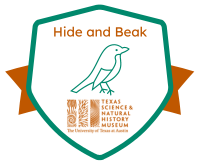
In this challenge participants will explore a variety of Texas birds, describe the relationship between a bird’s anatomy, particularly its beak size and shape, and its feeding behavior and diet and compare beak structures and their corresponding functions.






-

Archaeologists study artifacts and remains to learn about how people lived in the past. They use these finds to help determine information about how people interacted, what they did on a daily basis, and what they believed in earlier cultures and societies. Sometimes however, these artifacts only give small clues about the past. A paleontologist is a scientist who studies the history of organic life on earth, like dinosaurs, plants, fish, or even cell life whose remains have turned into fossils. Paleontologists have to understand geology and biology, as well as paleontology. They use historical geological maps and do research. Many fossils and artifacts can be found in our dig site. It is not unusual for our young archeologists and paleontologists to discover fossilized shells or bones of ancient creatures or artifacts left by Paleo Indians.






-

Our eyes can detect subtle variations in brightness, determine the colors and relative temperatures of stars, and even track the motions of the Moon and planets. On a clear moonless night, more than a thousand stars are visible. You can also see five of our solar system's planets, star clusters, galaxies, and the occasional bright comet. Become a stargazer by looking up toward the night sky to see stars and identify constellations.






-

Bioswales and rain gardens improve water quality by absorbing and filtering runoff through selected plants and soils. They are strategically located to intercept storm water runoff, often found along edges of parking areas and streets, mitigating potential pollution from entering our rivers and streams. Fischer Park has rain gardens at each of its main parking lots. Several rain gardens throughout an area are better than one. Below the surface of rain gardens, the selected plants and soils are hard at work cleaning the water. Once it is absorbed into the ground, sediment, nitrogen and phosphorus levels in the water are reduced by the combined actions of the plants, root systems and soils. Locate the rain gardens at each of Fischer Park's main parking lots and identify the special plants that were selected to filter storm water.






-
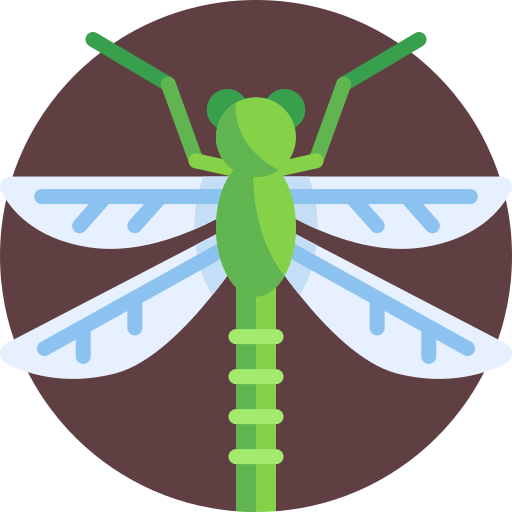
The native vegetation around the edges of ponds and streams are important to dragonflies, providing shelter during poor weather and habitat for them to hunt and mate. Here, adult dragonflies will hunt for food and begin looking for a mate. Once the dragonfly finds a mate, the female finds a calm body of water that will be a good place to lay her eggs, and the life cycle of the dragonfly begins all over again. The banks of our ponds are being improved to encourage a native plant system that supports native insects, birds, amphibians, and mammals by providing food and shelter.






-

Ferdinand Lindheimer is known as the "Father of Texas Botany" and is credited with the discovery of hundreds of plant species. It is estimated that he collected as many as 100,000 plant specimens during his lifetime. These plant specimens can be seen at the Smithsonian and at the Missouri Botanical Garden, among others. Many plant species today use Lindheimer's name as a designation in their scientific name. Identify plant species collected by Lindheimer and record your observations as he did noting the date, location, habitat, and general characteristics.






-

Invasive plants are not native to an environment or ecosystem and also cause harm when introduced. When an invasive plant is introduced, whole ecosystems change drastically. Invasive plants compete with native plants for sunlight, moisture, nutrients, and space. They also grow quickly, and often aggressively, smothering and choking out native species. As a result, native plant species diet out, plant diversity decreases, habitat and ecosystem quality degrades, and wildlife decreases. Many invasive plants are introduced into environments accidentally. Some are imported with landscape and nursery stock, fruits and vegetables, and other goods and materials. Because invasive plants often produce large quantities of seeds, they can be spread by birds and other animals, and even the wind. Sometimes, even humans can spread invasive plants when they aren't aware or don't realize the dangers. Help prevent the spread of invasive species in Texas by shopping for native plants and reporting sightings of invasive plants.






-

Fischer Park provides a rich and diverse habitat for many species of birds. In addition to common backyard birds, several birds that are unusual for the habitat and climate in this part of Texas have been observed here. This makes Fischer Park a valuable area for nesting birds and an important resting spot for migrating birds. Keep your eyes open as you walk around and listen for songbirds.






-

Animals offer many clues about their whereabouts besides paw prints. If you look closely, you may find scat (animal waste), owl pellets, fur, feathers, nests, skulls and bones, trail and chew marks on pecans, acorns and other things that an animal has left behind. • Can you see where male deer have rubbed their antlers on young trees? • Do you hear any birds or squirrels rustling in the leaves? • Can you smell the hollow tree where the raccoon sleeps?






-

The ponds at Fischer Park provide a clean and healthy environment with plenty of food, shelter, and hiding places, ideal for wild pond turtles. In order to keep their temperature between 75 and 90 degrees, turtles move around throughout the day. You may see them settled on logs or rocks to warm up from the sun or sliding into the water to cool off.






-

Watch dragonflies at the preserve and notice a few things about them






-
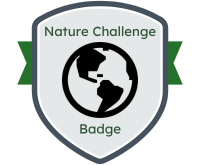
Bring a notebook and visit the preserve, then draw and write about what you notice






-

Explore how you can help conserve water in Texas!






-
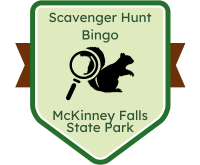
Keep your mind off the heat and have some fun with the family! Complete this scavenger hunt bingo game while you explore McKinney Falls State Park.






-
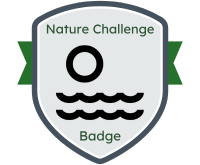
Lady Bird Lake in downtown Austin teems with life. There is a wide variety of wildlife – birds, mammals, insects, amphibians – and plant life – trees, shrubs, flowers – that changes with the seasons. So, you never know what you’ll find!






-

The Rio Grande Valley is one of the best places to go birding! Use binoculars or a recording app like Merlin. Keep track of the birds you see and hear! Keep a list of the species that you find while birding. Are they a year round or migratory species? Record your observations! Science Seed: The Rio Grande Valley is home to many birds, both migratory and year-round residents. It's one of the largest bird migrations in the world! Birds like the northern cardinal are common in the valley and prefer brushy areas, where they eat seeds and insects. Great-tailed grackles often form large flocks in urban areas and feed on small animals and scraps. Migratory birds, like the sandhill crane and whooping crane, stop in the valley during their long journey along the Central Flyway. The region’s mesquite trees, cacti, and grasslands provide food and nesting sites, while birds’ behaviors, like the mockingbird's songs, show how they adapt to the environment. For multiple languages visit: https://ecologistschool.org/park/geraldine_palmer/ornithology/bird-spotting/ Order real badges: https://familiesinnature.org/shop/#!form/Shopping






-

Using measuring tools like a ruler or tape measure, measure your wingspan! How do you compare to the different native Texas birds listed below? Can you find something in nature (a stick, a branch, a leaf) that’s about the same length as your wingspan? What is your favorite bird's wingspan? Why might a bird need a big wingspan? Why might it need a small one? Science Seed:Wingspan is the distance from fingertip to fingertip with your arms stretched out—same for birds! To find yours, stretch your arms in a T and measure across. Then compare: Whooping crane (7.5 ft), bald eagle (7 ft), great blue heron (6.5 ft), turkey vulture (6 ft), red-tailed hawk (4.5 ft), and the wandering albatross—the biggest at 12 ft! Big wingspans help birds glide long distances and save energy. Shorter wingspans help forest birds turn fast and catch food between trees. Access in 8 languages: https://ecologistschool.org/park/tsbvi/ornithology/wing-to-wing/ Buy real badges: https://familiesinnature.org/shop/#!form/Shopping






-

Using small rocks, shells, and other natural materials, build your own miniature oyster reef on the beach or in a shallow tray of water. Stack materials to create hiding spots like a real reef—how would fish, crabs, and other sea creatures use it? Once built, imagine how waves and tides would impact your reef. Science Seed: Oysters do more than just live in the ocean—they build entire underwater cities! Oyster reefs form when young oysters, called spat, attach to older oyster shells and grow in layers. These reefs provide homes for fish, shrimp, and crabs while also filtering water—one oyster can clean up to 50 gallons a day! In Texas, oyster reefs help protect shorelines from erosion by absorbing wave energy. However, overharvesting, pollution, and habitat destruction threaten these vital ecosystems. Conservation efforts, like using recycled oyster shells to rebuild reefs, help ensure that oysters can continue their important work in the Gulf of Mexico. Available in 8 languages: https://ecologistschool.org/park/travis-elementary/oceanography-marine-biology/oyster-reef-design/ Buy real badges: https://familiesinnature.org/shop/#!form/Shopping






-

Visit a Texas beach and mark the highest point the waves reach in the sand using a stick or a line of shells. Come back a few hours later—has the water moved? Is the tide higher or lower? If you can, visit at different times of day to see how the tides change! Think about what might cause the water to rise and fall—what role do the moon and wind play? Science Seed: The ocean is always moving, and tides—caused by the gravitational pull of the moon and sun—shape Texas’s coastline every day. When the tide rises, water moves farther up the shore, creating new feeding and nesting areas for coastal wildlife like crabs, shorebirds, and fish. When it recedes, it reveals tide pools and sandbars teeming with marine life. Wind and storms can also push water higher than usual, reshaping beaches and dunes over time. Studying tides helps us understand these natural patterns and how they affect the animals, plants, and people who rely on the ocean. Buy real badges: https://familiesinnature.org/shop/#!form/Shopping






-

Find two different areas in Dallas-Fort Worth—one covered in grass or soil and one with pavement or concrete. Pour a cup of water onto each surface and watch what happens. Does the water soak in or run off? Which area holds more water, and which dries up faster? Think about how this affects plants, animals, and even flooding in the city. How might rain gardens or green spaces help absorb water? Science Seed: The Dallas-Fort Worth area was once covered in tallgrass prairies, which absorbed rainwater, reduced flooding, and provided habitat for countless species. Today, much of the land is covered in roads, sidewalks, and buildings, which prevent water from soaking into the ground. This can lead to flash floods, hotter temperatures, and habitat loss for native plants and animals. However, parks, green roofs, and native plant gardens can help restore some of the prairie’s natural benefits, making cities more sustainable and resilient. Available in 8 languages: https://ecologistschool.org/park/tsbvi/climatology/ground-cover-challenge/ Buy real badges: https://familiesinnature.org/shop/#!form/Shopping






-

Imagine you’re an animal living in the Dallas-Fort Worth prairie! Can you move through the grass like a rabbit, sneak like a coyote, or hover like a butterfly? Find a patch of tall grass and try moving through it—how does it feel? Now, try crawling low like a snake or jumping high like a grasshopper. Which way is easiest? Which way helps you stay hidden? Think about how animals use their bodies and the landscape to survive in this unique habitat. Science Seed: North Texas was once covered in vast tallgrass prairies, filled with deep-rooted plants like bluestem and switchgrass. These roots help soak up water, prevent erosion, and keep the soil healthy. Prairies also create shelter for countless animals—rabbits, quail, and insects all use the tall grasses for food, protection, and nesting. Even though much of the original prairie has disappeared, conservation efforts in Dallas-Fort Worth are working to restore these important ecosystems. By keeping native plants in place, we can help support wildlife and even reduce flooding in our cities! Buy real badges: https://familiesinnature.org/shop/#!form/Shopping






-

Walk around your neighborhood, a park, or even your backyard after it rains. Where does the water go? Does it soak into the soil, collect in puddles, or run off into storm drains? If you see a creek or river, check how high the water is after a rain compared to drier days. Think about where this water comes from and where it’s going. What happens when there isn’t enough rain? How do Austin’s water sources change during a drought? Science Seed: Austin relies on the Colorado River and Highland Lakes for drinking water, but these sources shrink during droughts. Texas is known for cycles of dry and wet years, making water conservation essential. When rainfall is low, lake levels drop, and restrictions on water use help ensure there’s enough for everyone. Native plants, rain gardens, and water-saving habits—like turning off sprinklers during dry months—can help communities manage water more sustainably. Buy real badges: https://familiesinnature.org/shop/#!form/Shopping






-

Find a patch of land where rainwater collects, like a low spot in your yard or near a sidewalk. Observe how quickly water soaks in after a rain. Now, imagine how plants could help! Using small rocks, sticks, and leaves, design a miniature "rain garden" that slows down and soaks up water. If you have access to native plants, try planting some in a garden or pot to see how their deep roots help hold water. Science Seed: Austin’s natural landscape, including the Edwards Aquifer and native prairie plants, plays a big role in water conservation. Deep-rooted plants like switchgrass and Texas sage help rain soak into the soil, preventing runoff and erosion. Rain gardens and green spaces mimic these natural systems, reducing the impact of droughts and protecting water supplies. By using nature-inspired solutions, we can help Austin manage its water more efficiently, even in dry years. Buy real badges: https://familiesinnature.org/shop/#!form/Shopping






-

Find a pinecone and observe how it looks on a dry day versus a humid or rainy day. Does it stay open or close up? Try placing one in a sunny spot and another in a cup of water—what happens? Keep track of the changes throughout the day and think about why pinecones behave this way. How might this help pine trees survive in East Texas? Science Seed: Pine trees in East Texas, like the loblolly and longleaf pine, have developed special adaptations for their environment. One of their most interesting features is how their cones react to moisture. When it’s dry, pinecones open up to release seeds, taking advantage of the wind to spread them. When it’s humid or rainy, they close up to protect the seeds from rotting or getting washed away. This natural response helps ensure the next generation of trees can grow successfully in East Texas forests. Buy real badges: https://familiesinnature.org/shop/#!form/Shopping






-

Did you know that many plants in East Texas forests have been used for medicine? Take a walk and look for trees like pines, oaks, and sweetgums. Can you spot sticky pine sap, rough bark, or fallen leaves? Imagine how these parts of the tree could be used—pine sap was once used to seal wounds, and sweetgum leaves contain ingredients found in cold medicine! What other plants might have hidden uses? Science Seed: East Texas is home to the Pineywoods, a dense forest full of plants with unique properties. Indigenous peoples and early settlers used pine sap as a natural bandage, and sweetgum tree resin contains compounds similar to those in modern cold medicine. Even yaupon holly, the only native North American plant with caffeine, was brewed into an energizing tea! By exploring the forest, we can discover how plants have supported humans and wildlife for thousands of years. *Never eat anything you find without a 100% confident ID. We do not recommend foraging without a trained elder or guide. Buy real badges: https://familiesinnature.org/shop/#!form/Shopping






-

This activity introduces participants to the wonders of soil—what it is, why it matters, and what it's made of. Through interactive exploration, participants will learn about soil textures and composition. A hands-on Mason Jar Soil Test will allow them to analyze different soil layers firsthand.






-

Designed for exploration and physical engagement, this activity encourages participants to discover the unique biodiversity of Resler Canyon. The bingo card challenge prompts children to find elements like ocotillo, flowers, and wildlife tracks while immersing themselves in nature. A word-hunting puzzle adds an educational layer, reinforcing the experience.






-

Pollinator Exploration (Anywhere Activity) This activity highlights the critical role of pollinators in our ecosystem. Participants will complete a pollinator worksheet to understand their importance, engage with an Explorer Shuffle Sheet, and enjoy a coloring printable featuring key pollinators






-

Participants will delve into the world of mountain lions, learning about their diet, adaptations, and role in the ecosystem. A hands-on animal clay track activity will allow them to create and analyze prints, fostering a deeper understanding of wildlife tracking.






-

This activity explores the unique geological and ecological features of Knapp Land. Participants will engage with hands-on materials to understand the landscape’s formation, native plant life, and ecological significance through a scavenger hunt.






-

Understand that a lake is an ecosystem made up of living and non-living things by creating a food web, practicing critical thinking and observational skills!






